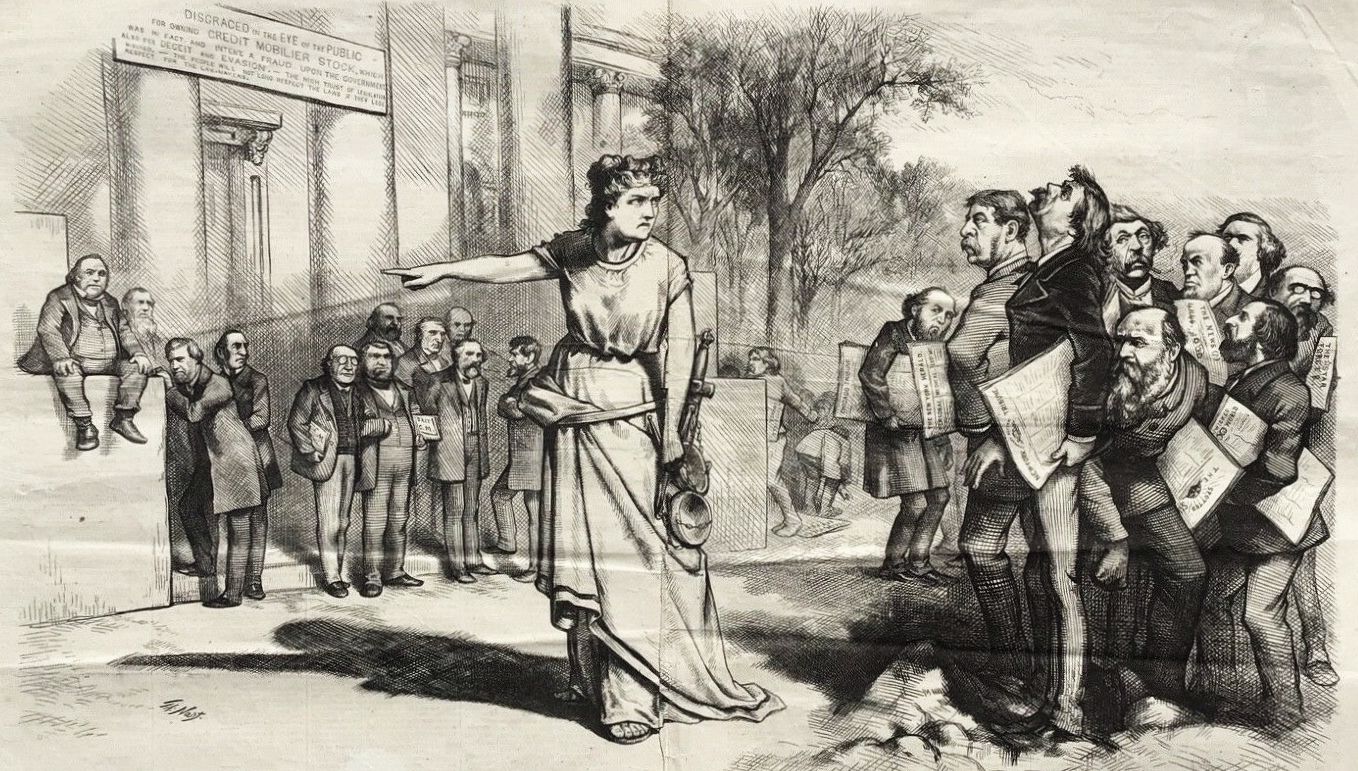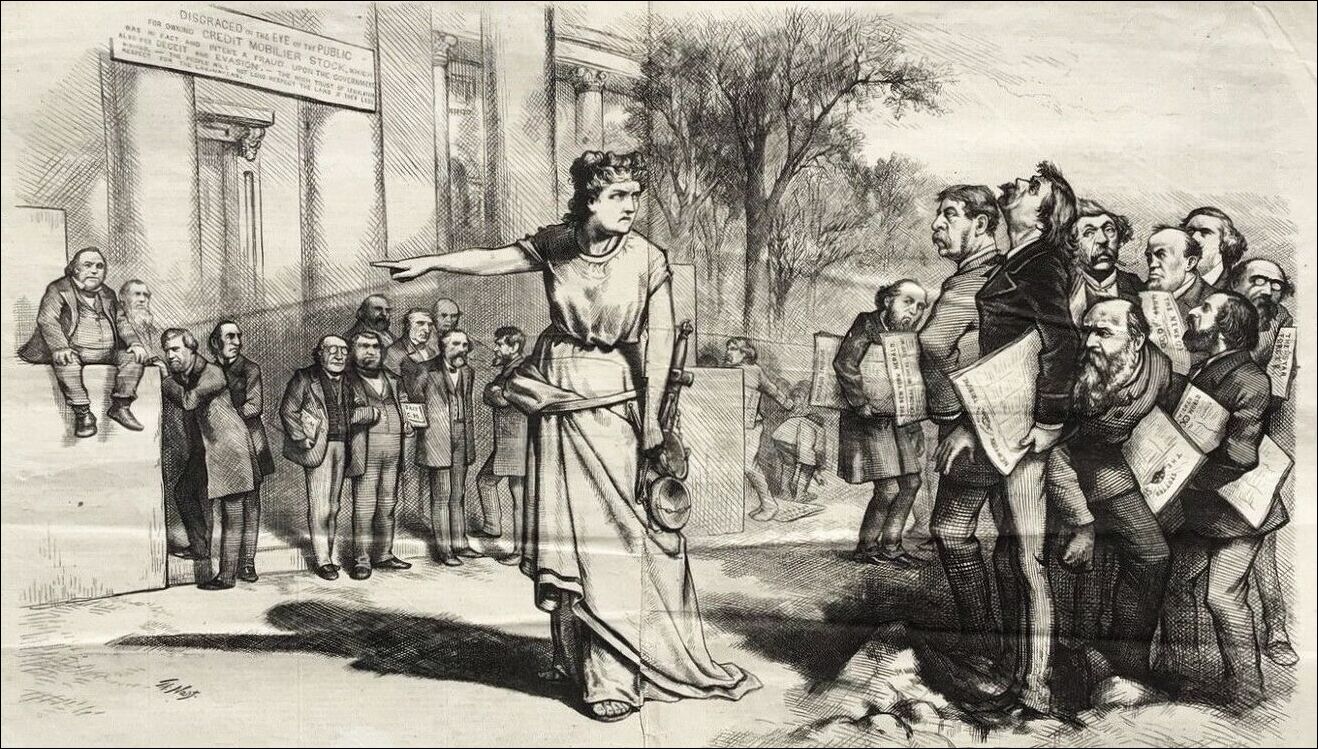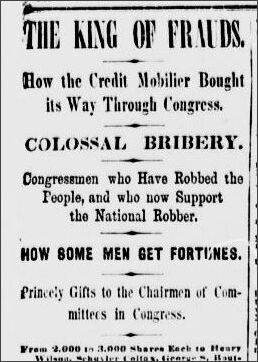Authors:
Historic Era: Era 6: The Development of the Industrial United States (1870-1900)
Historic Theme:
Subject:
November/December 2022 | Volume 68, Issue 6


Authors:
Historic Era: Era 6: The Development of the Industrial United States (1870-1900)
Historic Theme:
Subject:
November/December 2022 | Volume 68, Issue 6

Editor’s Note: Robert Mitchell is an editor with the Washington Post News Service and the author of two books on American history, including Congress and the King of Frauds: Corruption and the Credit Mobilier Scandal at the Dawn of the Gilded Age, from which he adapted this essay.
On September 4, 1872, under the headline “The King of Frauds,” the New York Sun published a blockbuster exposé spread over three of its four pages that would become the birth announcement of the era in American history known as “the Gilded Age.” The Sun revealed that Rep. Oakes Ames of Massachusetts had peddled valuable stock in a contractor of the Union Pacific Railroad with the unlikely name of Crédit Mobilier to other members of Congress to win support for the company's interests on Capitol Hill. The Sun called it bribery, but Ames refused to concede that he had done anything wrong. By the time it was all over, few beyond Capitol Hill or his home state agreed.

Published as President Ulysses S. Grant coasted to re-election and a scandal-plagued second term, the scoop implicated many of the most prominent figures in Washington. At the top of the list was Vice President Schuyler Colfax, the Indiana editor-politician who allegedly received shares while Speaker of the House, and Treasury Secretary George Boutwell, a former congressman from Massachusetts.
The Sun charged that other recipients included James G. Blaine of Maine, who succeeded Colfax as Speaker; Representative Henry L. Dawes of Massachusetts, chairman of the House Ways and Means Committee; and James A. Garfield of Ohio, the rising star in the House Republican caucus who chaired the House Appropriations Committee. The affair also tarred Henry Wilson, the Massachusetts senator who succeeded Colfax as Grant’s vice president. Almost all of the leading figures named by the Sun were Republicans, but the newspaper also linked a prominent Democrat, James Brooks of New York, to the scandal.
The sweep of the allegations shocked the public. “If the standard of public morals at Washington has become so degraded that Wilson, Boutwell, Dawes, Blaine and Garfield cannot be trusted, then it is time there was a general cleaning out of the whole establishment,” the Chicago Tribune thundered. Boutwell and Blaine satisfied investigators that they were not involved, but virtually no one else linked to Crédit Mobilier emerged entirely unscathed.
Ames freely admitted selling Crédit Mobilier shares to his colleagues – and he was equally candid about his reasons